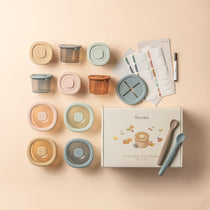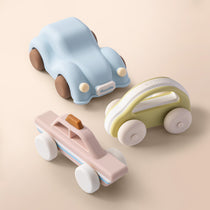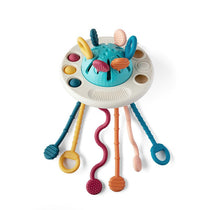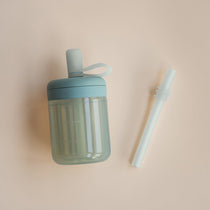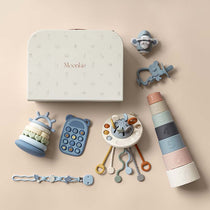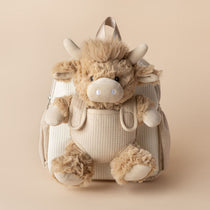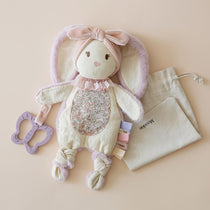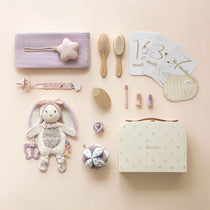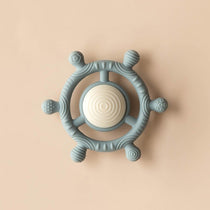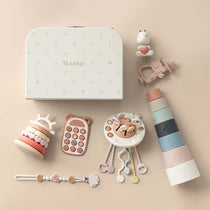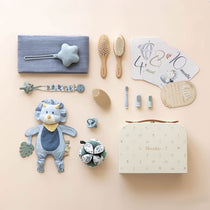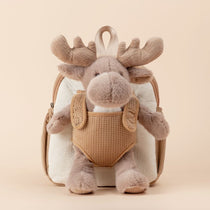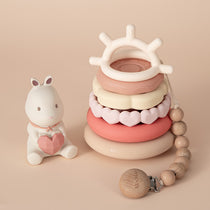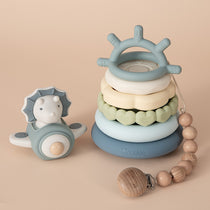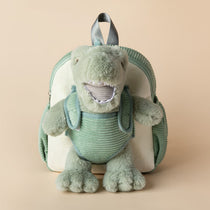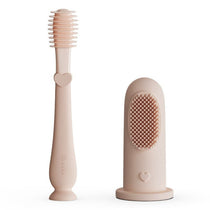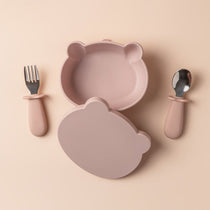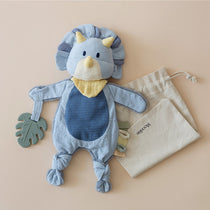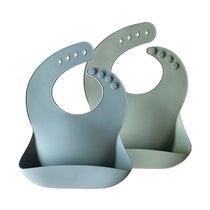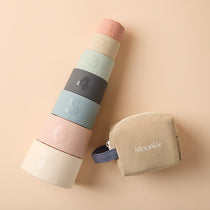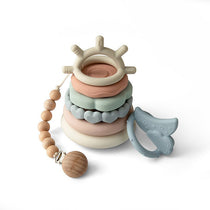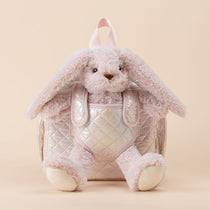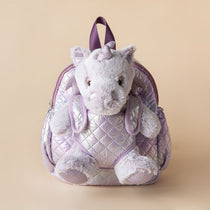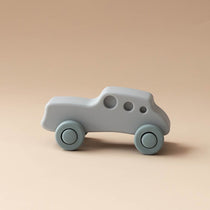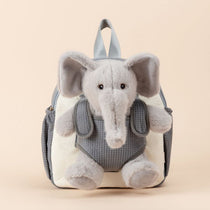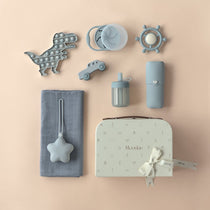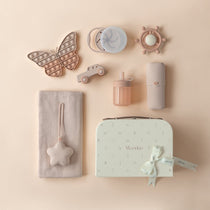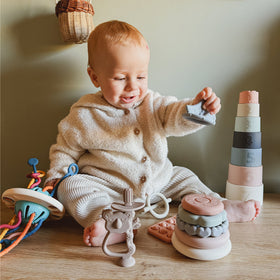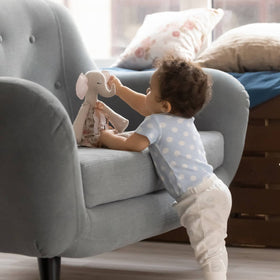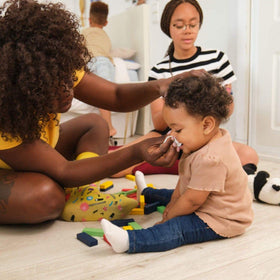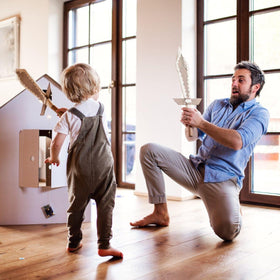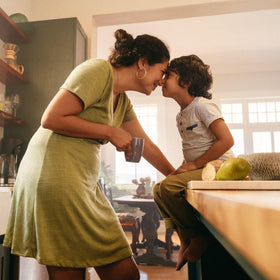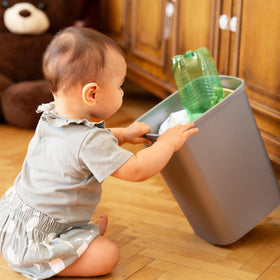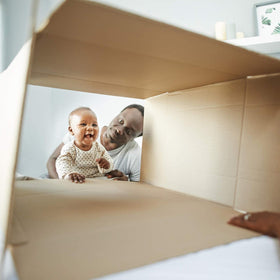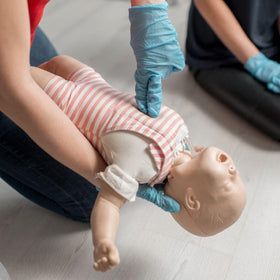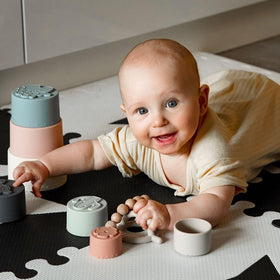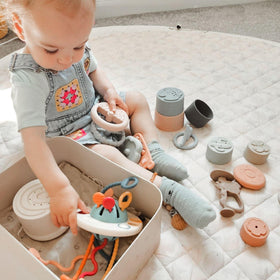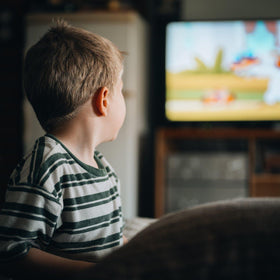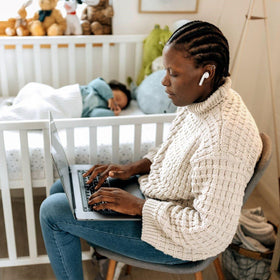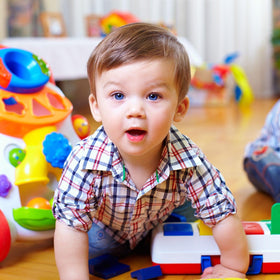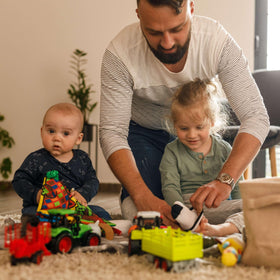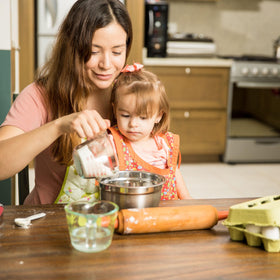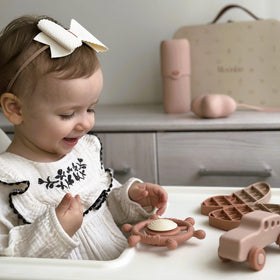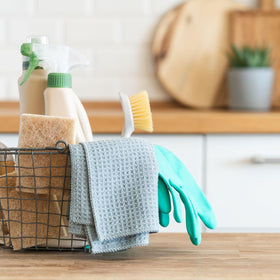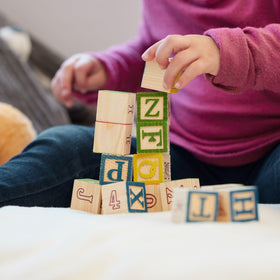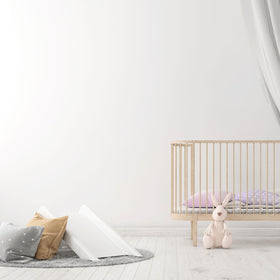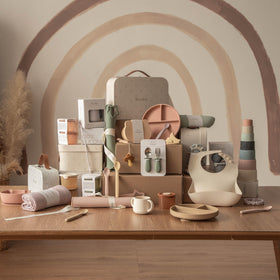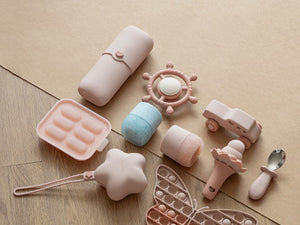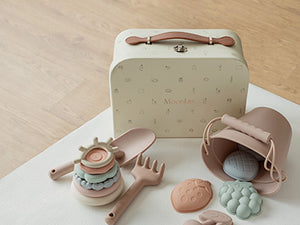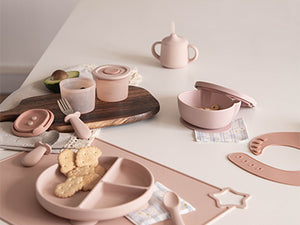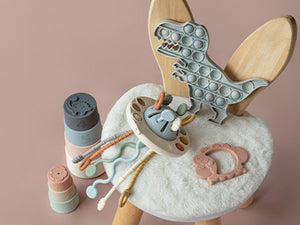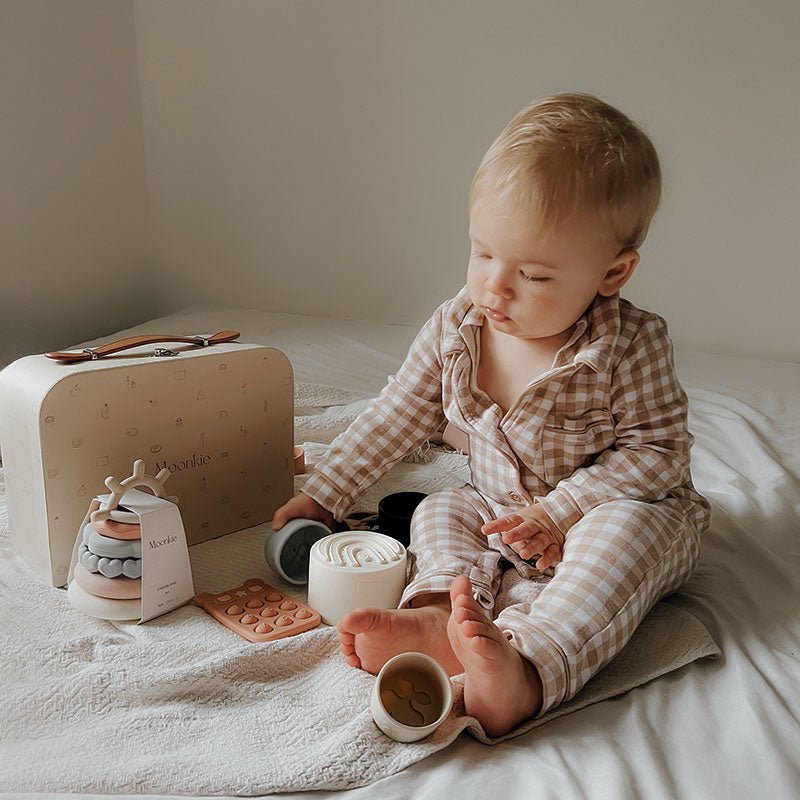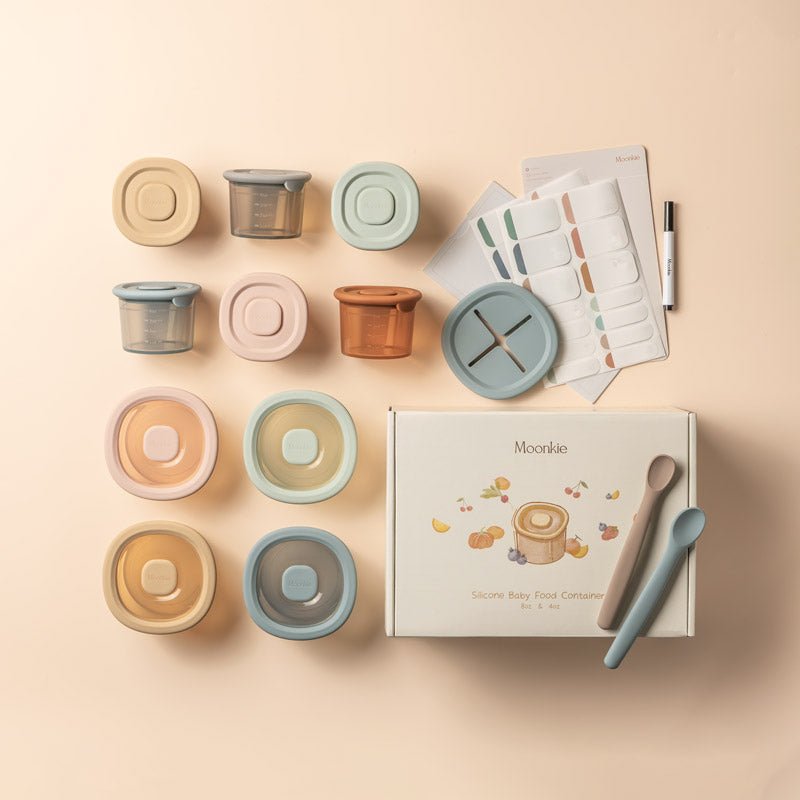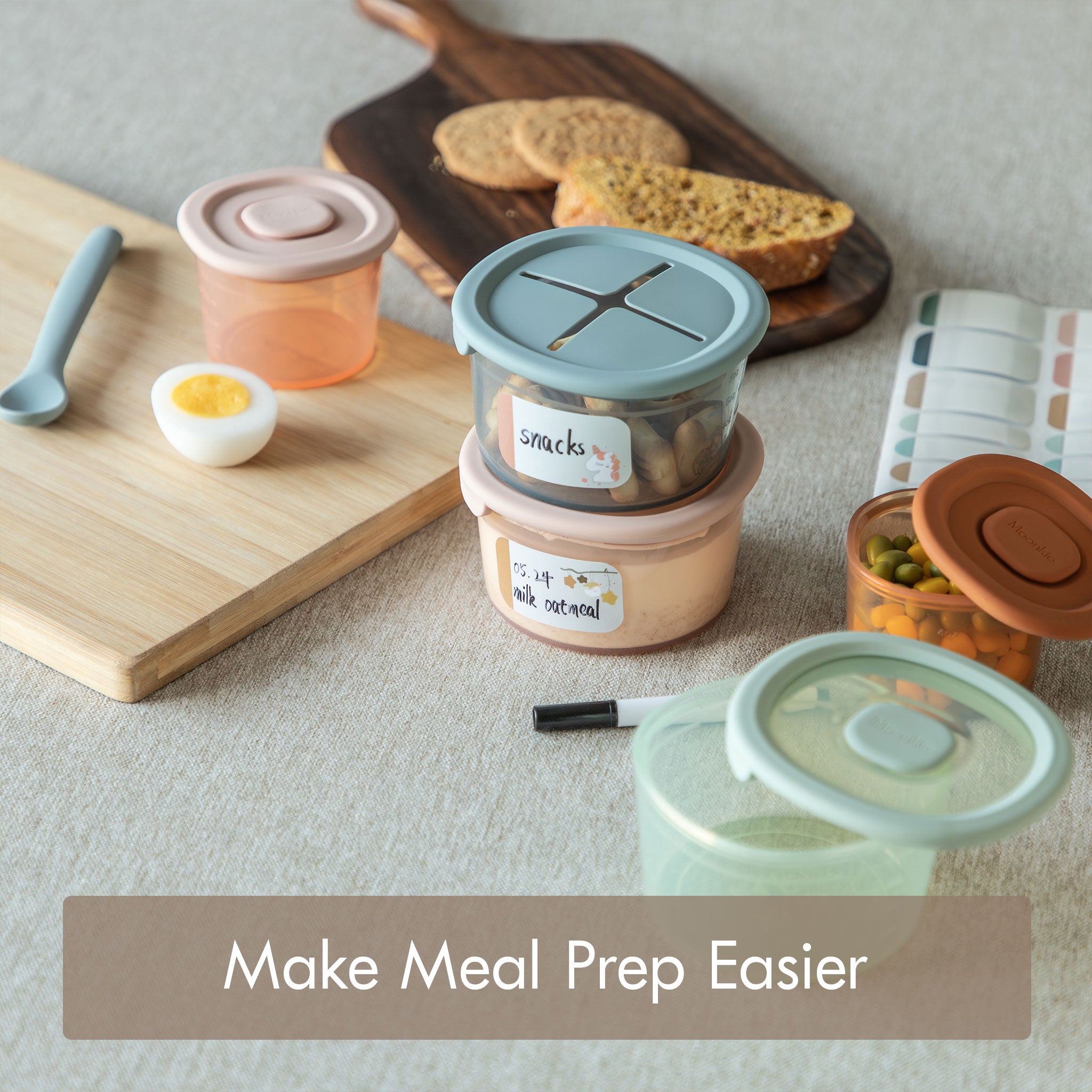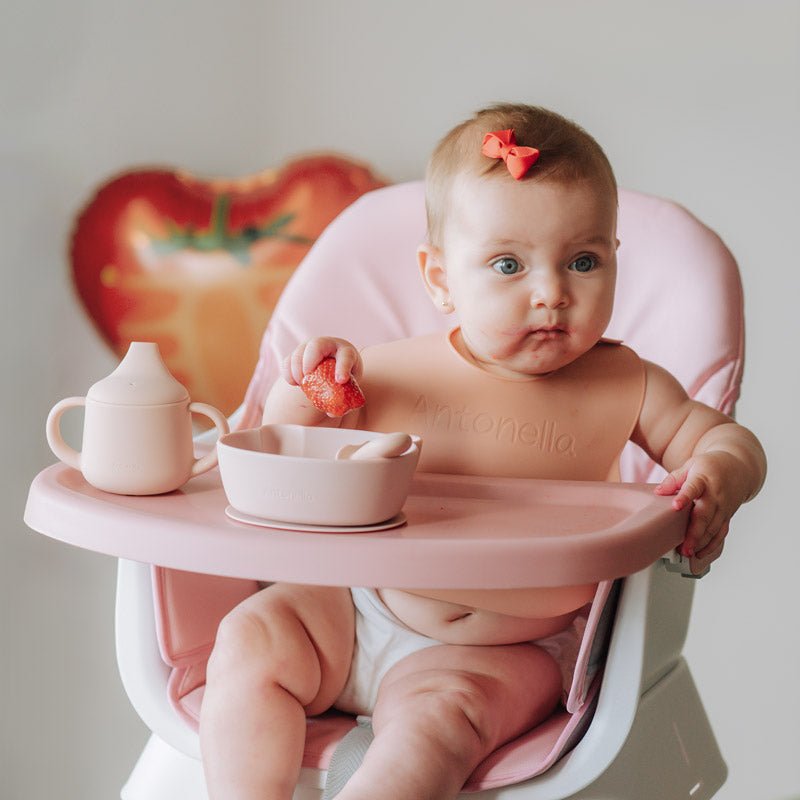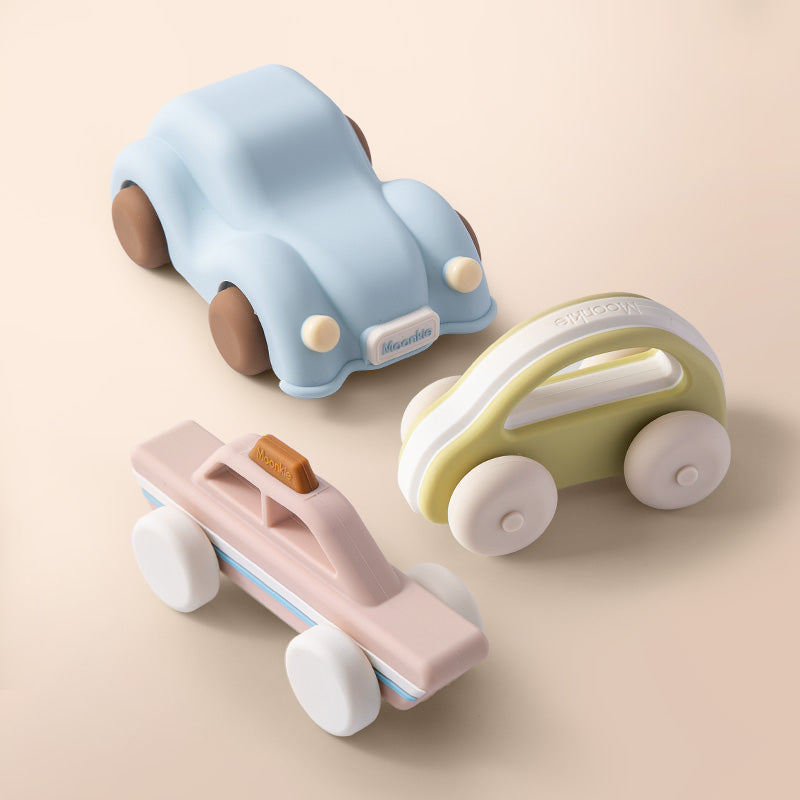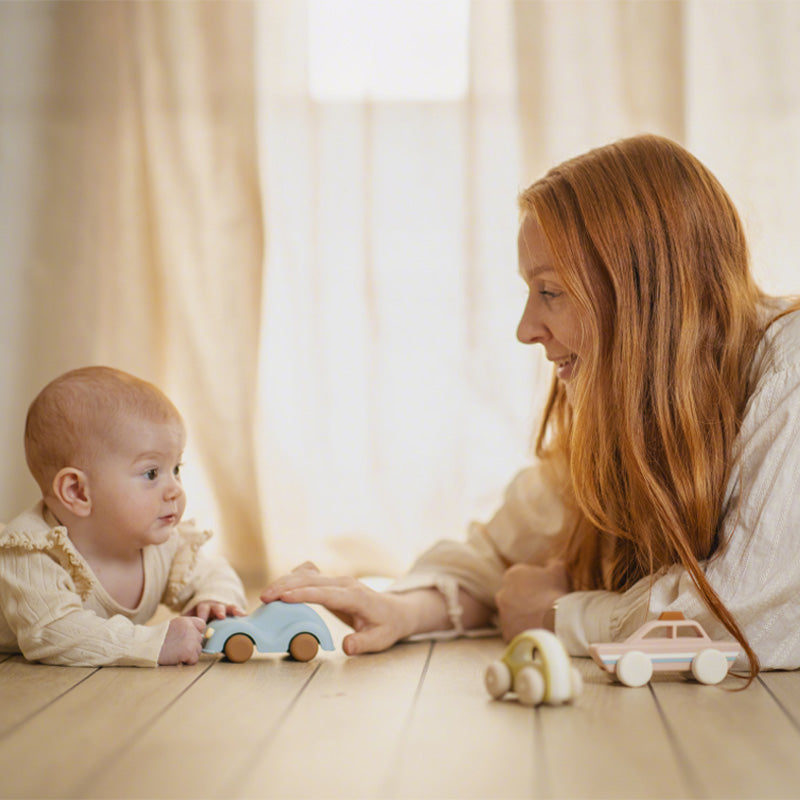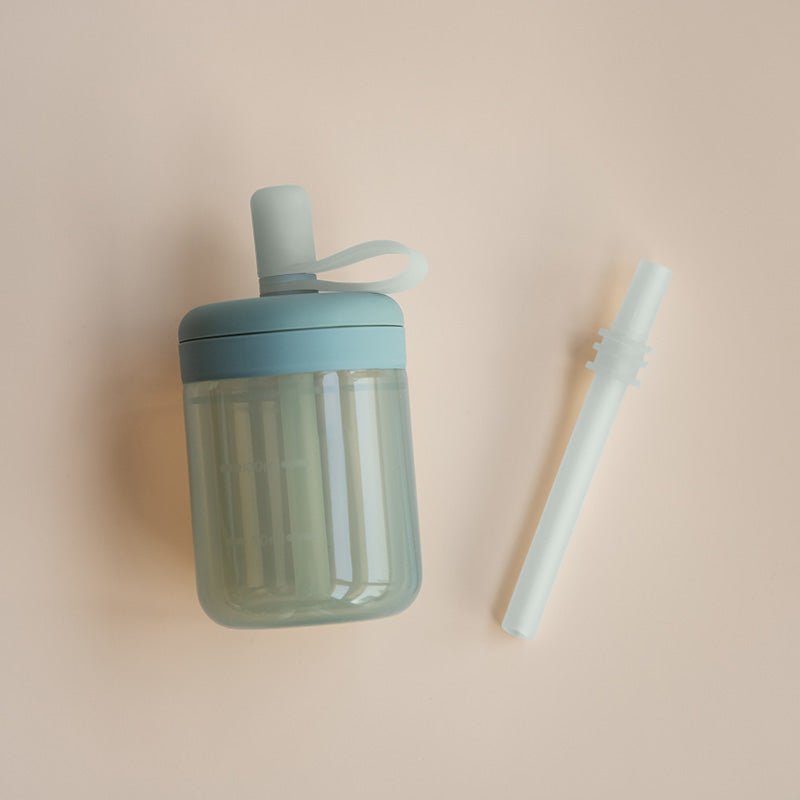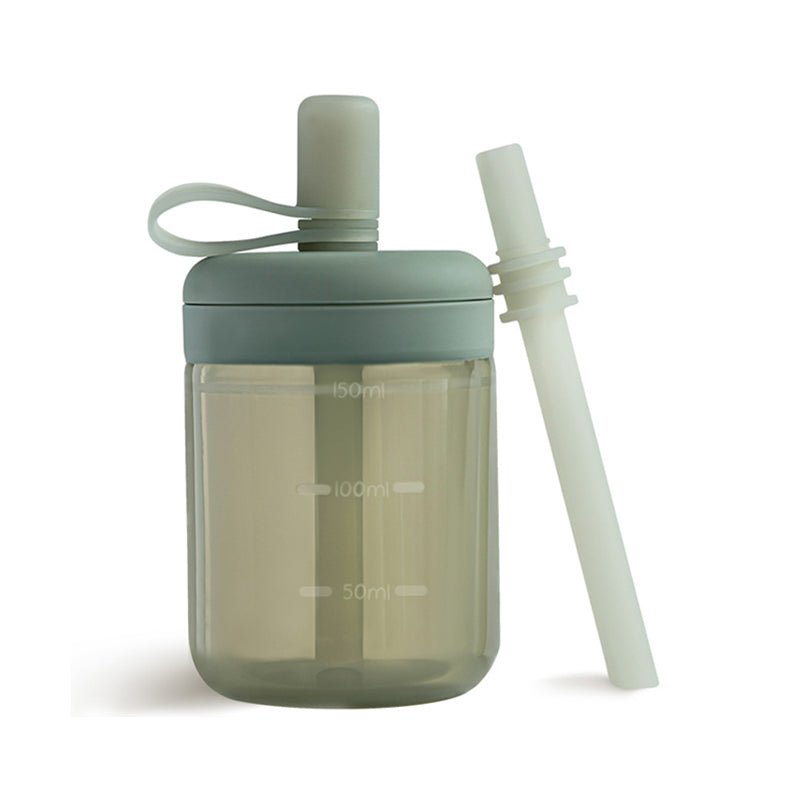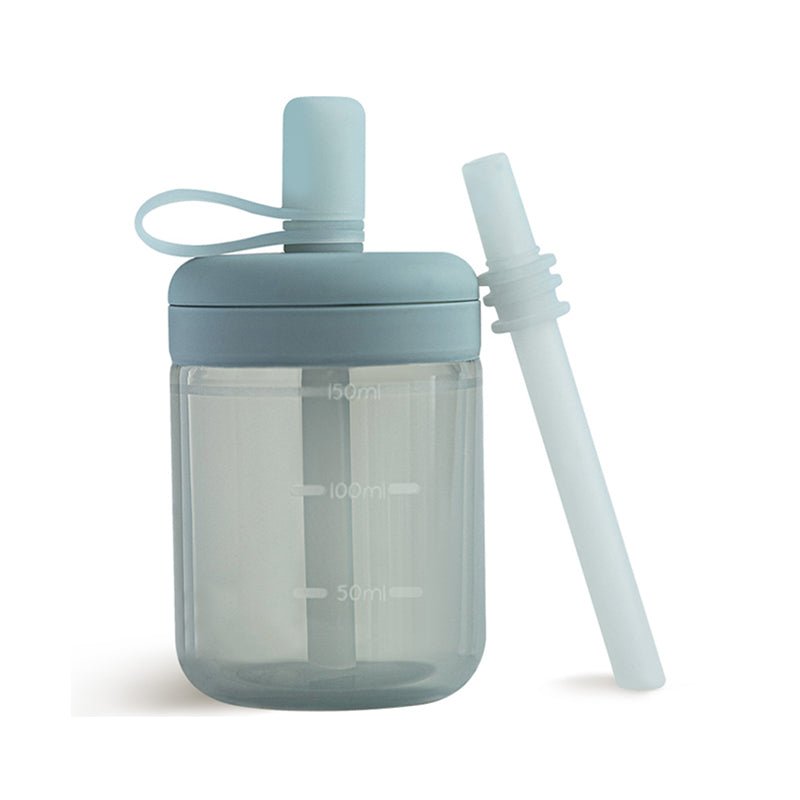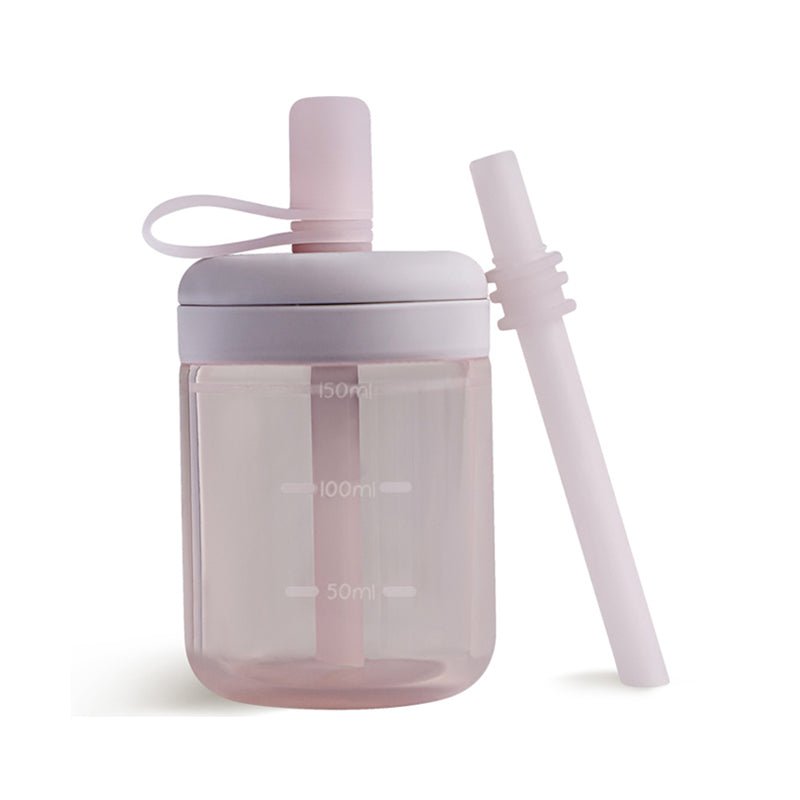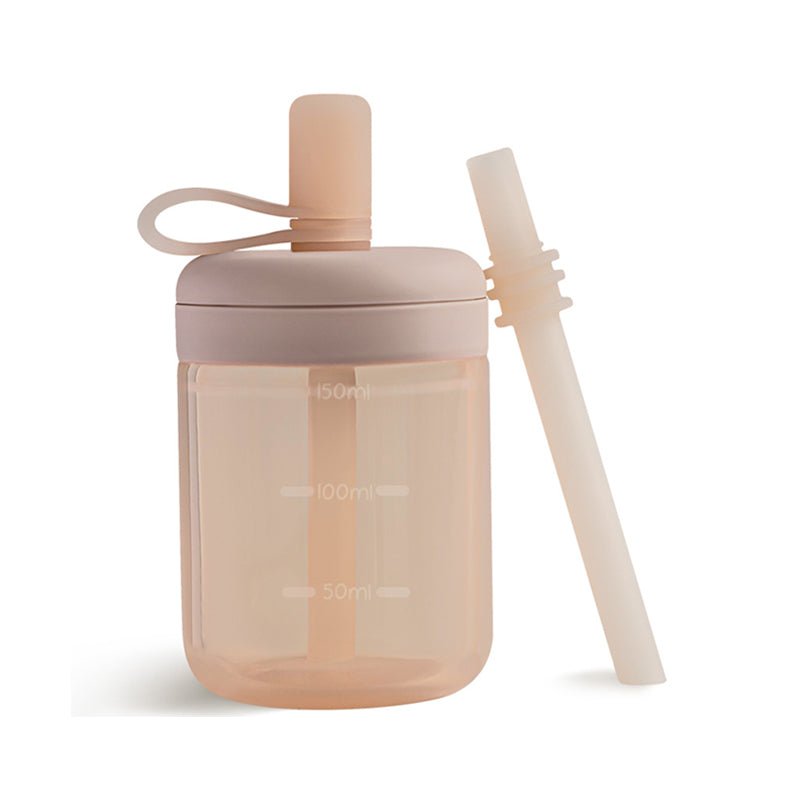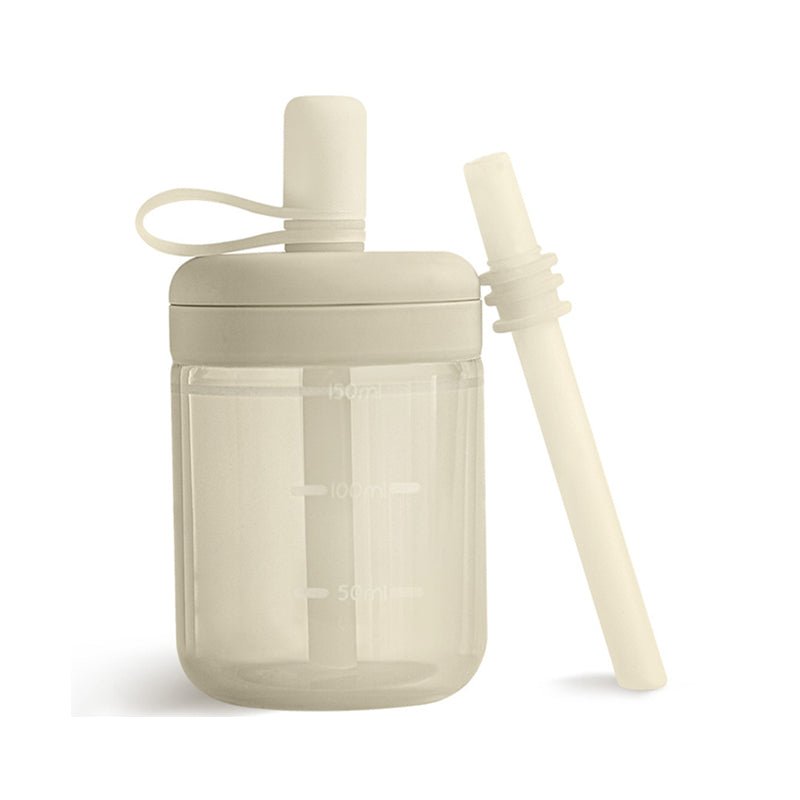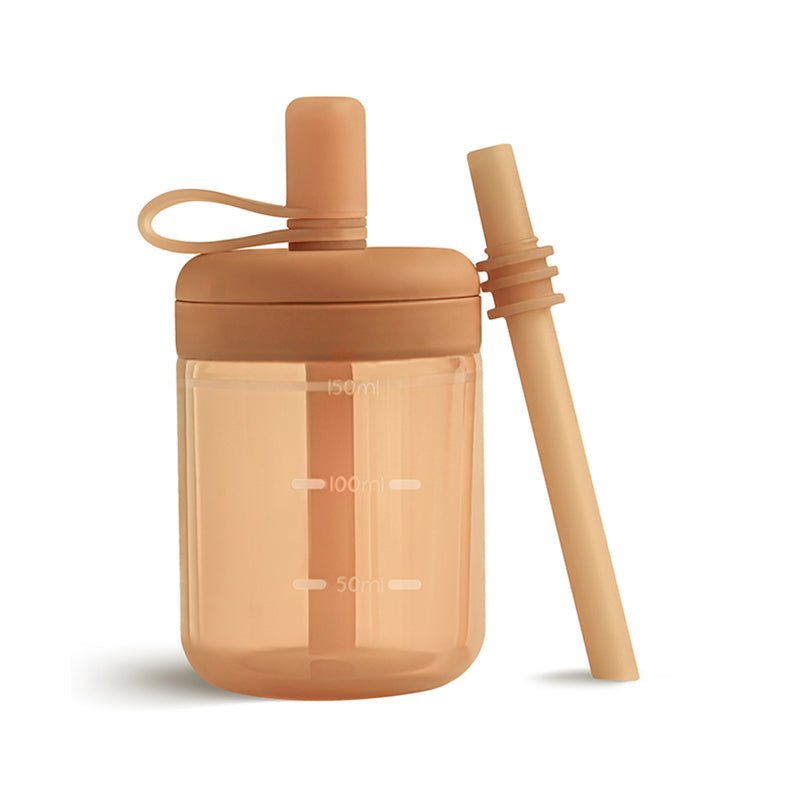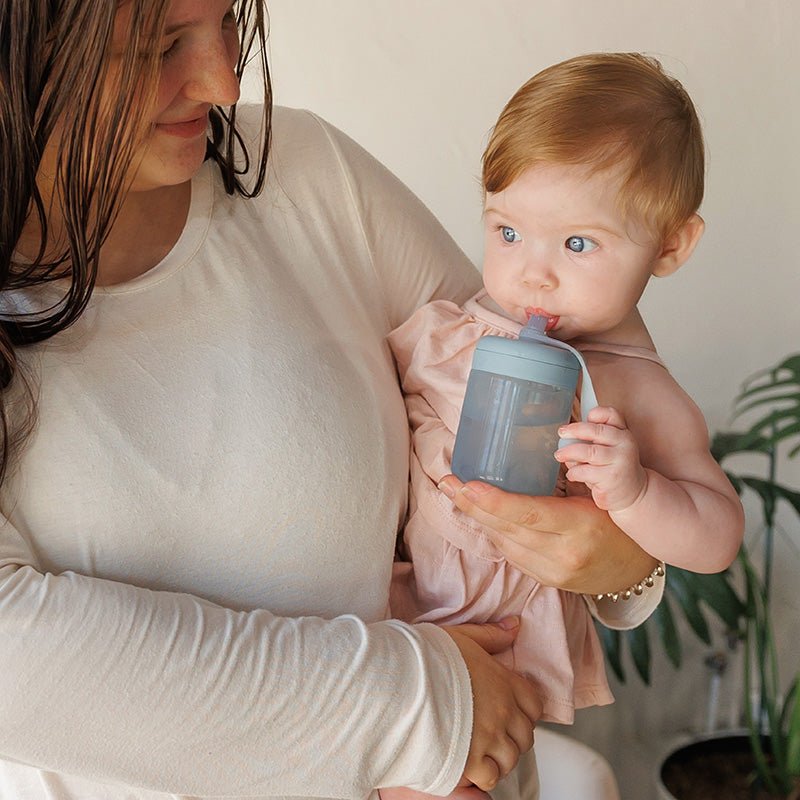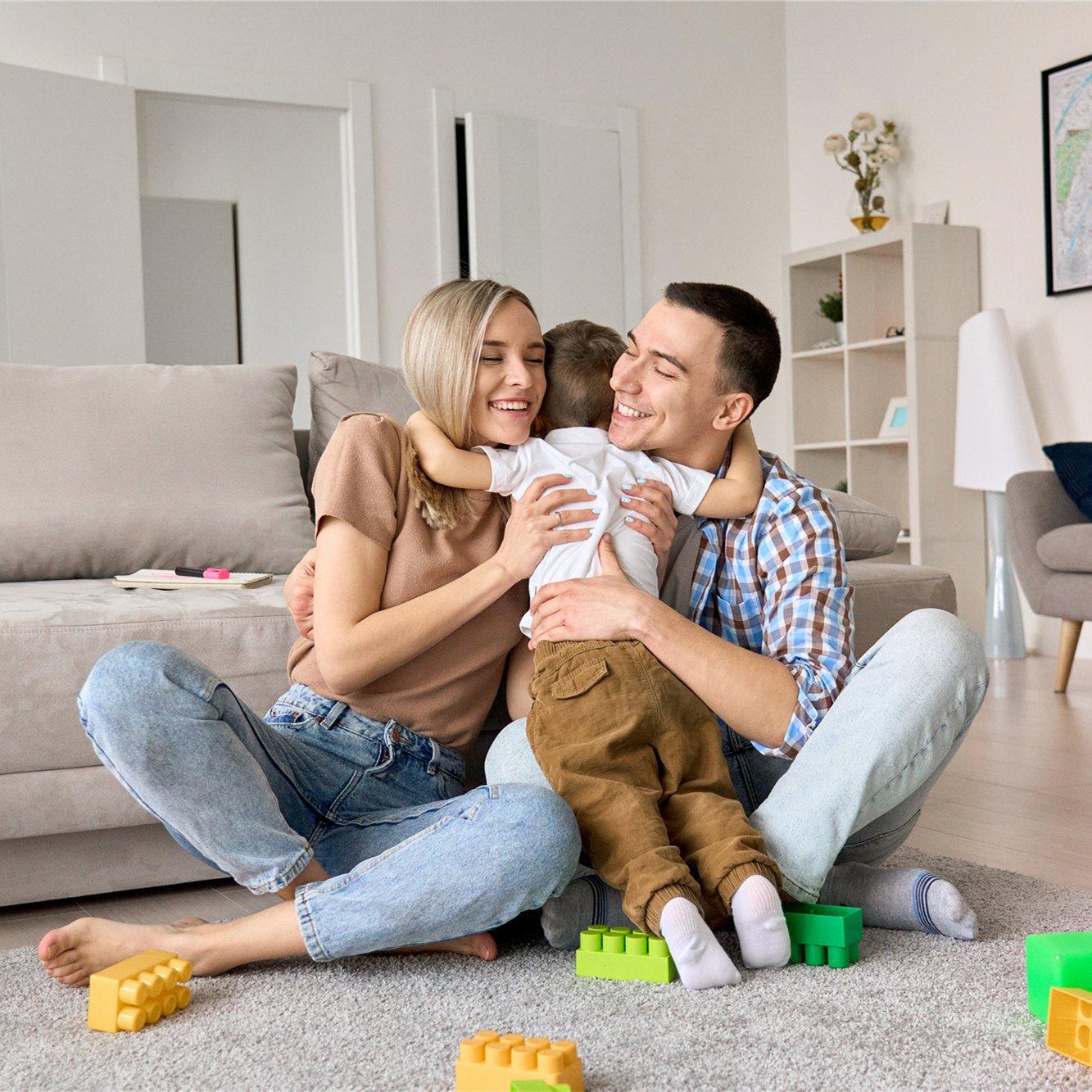
Parenting is rough. Can we all agree on that? No other task on this planet requires you to respond gently and gracefully to being pooped on, thrown up on, or smacked in the face repeatedly. We know we can't be perfect, but how can we get up day after day to run the gauntlet of parenthood well?
Sustainable parenting means raising your kids, taking care of necessities, and doing life in a way that doesn't lead to burnout, blowups, or crying in a closet. Some hacks for busy moms and dads include sleeping like you should, saying no more often, and keeping a calendar record for reflection.
Parenting doesn't have to be overwhelming or stressful day in and day out. We've got a few ideas you can try to take it all in stride.
What is Sustainable Parenting?
Taking care of yourself and your family can be a challenging balancing act. Between work, chores, feedings, changings, and playtimes, you've got a lot going on, and that list only gets longer as your baby grows or as you have more kids.
Sustainable parenting is the quest to preserve yourself while taking care of your family. It's less about going green and more about doing life well with munchkins while you make smart choices for yourself.
Since you don't do a great job of parenting while being at the end of yourself, you've got to take care of yourself. It's a circle that quickly devolves into a vicious cycle if not properly maintained, as you may know already.
How Do You Know When You Are Not Parenting Sustainably?
Seasoned parents already know the answer to this, but for the sake of completion and expecting parents who have yet to experience the struggle, here are a few warning signs that you're burning out or not parenting sustainably.
having a quick temper (how dare you drop that cup again!)
being easily annoyed (that flashing light has got to stop!)
feeling apathetic (I don't care that my baby has been in the swing for two hours)
dreading the routine (the baby is getting up soon; I hate this nonstop cycle)
not wanting to get up (sleep is all I want)
ignoring your baby's signals sometimes (she's going to cry anyway)
choosing to do endless chores instead of bonding with your baby often (I have to...)
pushing off whatever you can (I can take out the trash tomorrow)
leaving home creates anxiety (what if I don't have...)
This list is far from comprehensive, but you get the point. You know you are not balancing self-care, parenting, work, and life necessities well when you live in a constant state of anxiety, dread, worry, apathy, frustration, anger, or annoyance.
Yes, a chemical or hormonal imbalance in your body will lead to similar feelings and struggles, but even then, practicing a few good habits of self-care and planning ahead will lessen the impact your struggles have on your family.
9 Hacks for Busy Moms and Dads
Sustainable parenting doesn't have to be overwhelming or stressful. By making a few simple changes to your family's lifestyle, you can reap many benefits while also living in line with your values.
Here are nine sustainable parenting hacks that are totally doable with some forethought:
1. Prioritize Sleep
Though getting enough sleep with a baby around seems akin to moving mountains with a shovel, adequate sleep is one of the most powerful things you can do to parent more sustainably. Being well-rested makes you more patient, observant, and willing to do everything that is parenting.
So, what does it take? For me, it was getting off screens around 8:30 every evening and shutting out the lights by 9:30. I know; that sounds ridiculous. But with my second baby waking up two times every night and waking for good at 6:00 AM until she was nine months old, I had to do something.
Every baby and parent is different, so work it out at the times that make sense for you. Set a time to put away screens and set a consistent alarm. It helps to wake up at the same time every day, even if your baby wakes more often some nights. After a couple of weeks, your body will get used to it.
During the day, you can take a nap while your baby sleeps. That time is precious for getting things done efficiently, but sleep helps keep your nerves and frustration at bay. If you have a toddler or older kid to keep an eye on, then try just taking it easy.
I started a "quiet time" for my oldest during my second baby's afternoon nap. Sometimes, he napped, but he usually looked through books and played with blocks and cars in his room without a problem.
2. Stop Watching Screens So Much
Time yourself--really. Seeing how much time you stare at a screen will be one of the scariest numbers you see after how much was cut out of your paycheck for taxes last year.
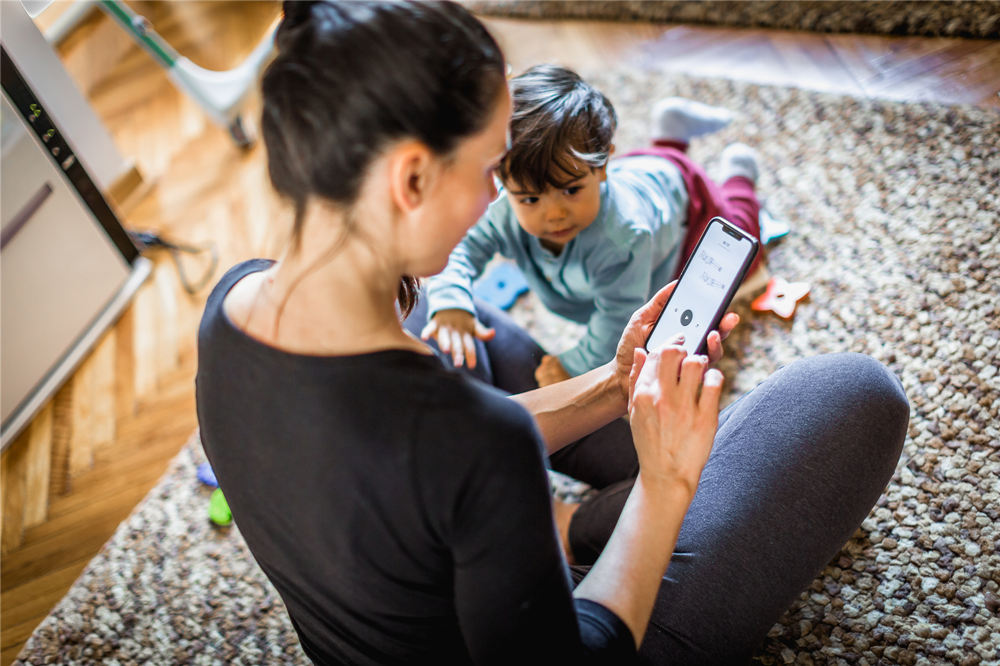
Aside from keeping you awake, spending a lot of time scrolling on your phone or watching TV can keep you from exercising, knocking things off your to-do list, or connecting with your baby.
Research in 2020 found that the average American spent seven hours a day looking at a screen, and that time increased dramatically during the pandemic (source). We also know from research that increased screen time is a leading cause of declining physical and psychological health, as well as sleep (source).
Limiting your own screen time is essential for taking care of yourself physically and mentally. Besides, whatever your baby grows up seeing you do in your free time will likely affect the way she spends her free time later in life. You are always teaching by example.
3. Go Outside
"Get out and exercise" is said so much that it has become a cliche, but it is true. Getting out to exercise at least 150 minutes a week helps adults manage their weight, stress, anxiety, and mental health (source). Exercise also helps decrease cravings (source).
Parenting is stressful and exhausting, so the last thing sleep-deprived parents want to do is go outside for a walk. But, if you think of it as a chance to refresh everyone and redirect your baby's fussiness, then you may actually look forward to it as a family habit.
Besides, establishing a habit of going outside for a while most days is fantastic for setting healthy habits for your baby's future.
4. Say No
Have you ever heard of Essentialism? Not the philosophy but the lifestyle. The goal of an essentialist lifestyle is to do less in order to focus on what really matters. It means saying "no" to most of the extra events and opportunities out there.
Before kids, it's easy to say "yes" to opportunities for work, travel, parties, or hanging out. When you add a little one to the mix, it's not impossible to do those things, but they certainly become a lot more stressful.
Instead of accepting every invitation that comes your way, try pulling back to just a couple of things every week. Set a routine at home that allows you to take your time and enjoy each other. You may find that your stress and frustration levels come down when there's less to rush off to.
5. Practice Gratitude
When each of my babies was born, I started a journal for them. I write a letter of encouragement to them on birthdays, major holidays, and whenever I think of something I want them to remember. One day, I'll give these journals to them as adults.
My purpose for this is gratitude and history. I don't want to forget the goofy things they've done or the marvelous ways they've grown, and I want to share the thankfulness I feel in parenting them. Should they have kids in the future and face the same struggles I face today, I want them to know it's all going to work out.
Or if something happens to me, I want them to know how much I loved them and the memories I cherished. Knowing these could help them through tough seasons later in life. What I didn't expect from this exercise is how much joy and restfulness it gives me while writing these letters or reading back through them. It's worth the time!
6. Choose Quality Over Quantity
Quality food, toys, clothes, and experiences are always going to go further than quantity. Invest in durable, eco-friendly items that will last a long time rather than constantly buying new things that will quickly wear out or become dated. Quality food helps your mind and body as well.
Choosing quality is often more expensive in the short term, but it's more frugal in the long term. Think of cost per use. If you spend $100 on shoes that you wear for 800 miles, you will pay 12.5 cents per mile. But if you spend $30 on shoes that only last for 200 miles, you will have spent 15 cents per mile.
Likewise, spending $100 on a set of high-quality, skill-building toys for your baby makes sense if your little one is going to play with it for years and pass it on to future siblings, whereas $5 on a cheap plastic toy that gets thrown away after a couple of months is not worth the cost per use.
For some ideas on how to make your dollar work by cost per use, read The Ultimate Guide to Reusable Essential Baby Products.
7. Focus On Improving By 1%
We all become frustrated with ourselves for not doing the things we said we would do. Maybe you couldn't go to that birthday party because your baby got sick, or you haven't lost the baby weight from your first pregnancy that you thought you would have by now.

As a parent, you hold the weight of the world on your shoulders and may hold yourself to a ridiculously high standard. Fixating on big goals is not the way to improve sustainably. That can lead to burnout, frustration, bitterness, or low self-esteem.
Instead, focus only on the next right step. What can you do today to get just 1% closer to your goal? Even if you take a week to improve 1%, those 1%s add up quickly! Seeing that you are indeed improving helps you stave off so many mental struggles.
If you find that you are predisposed to having low self-esteem or frustration with yourself, try taking a break from social media. I know it's drastic, but removing yourself from the easiest way to compare yourself to others may improve your mind state, give you control over your thoughts, and give you time to focus.
8. Have a Regular Date Night
Having a regular date night affords you and your partner to rest together and focus on your relationship, which understandably gets strained with a baby around. It doesn't have to be weekly or even biweekly to be effective, so no worries if you are not able to find a babysitter that often.
Finding scraps of time to spend together at home is also excellent for your relationship. For example, having a thirty-minute coffee break together while the baby naps or hanging out at the end of the day when your little one goes down for the night allows time to unwind together.
If you're a morning person, wake up early to enjoy a hot drink together. Whatever it takes! Little ones who grow up watching their parents not only love one another but like being with one another go on to live healthier lives physically, mentally, emotionally, and socially (source).
Moreover, your little one will learn how to treat a partner and how a spouse should treat her by watching your relationship (source). When confrontations happen, do it in a loving and respectful way to show your little one how to manage conflict. You'll see the fruit of your self-control as she builds relationships with others.
9. Avoid Blowing Up in Anger
Yelling, throwing things, and slamming doors are terrifying to little ones, whether this behavior is directed at them or to someone else. If you are in this habit or tend toward it, learn to control it and handle your anger in other ways.
Acting out in anger like this can cause toxic stress in your little one, which will likely result in behavioral problems, depression, anxiety, low self-esteem, stress, and other issues down the road (source). Aside from that, your child will not know how to appropriately handle his own anger toward others.
The way you act at home and the way you treat your child today lay the foundation for your child's emotional wellbeing, habits, and relationship skills. If you need help learning self-control in your anger, stress, anxiety, or frustration, seek help sooner rather than later. Kids will push your buttons!
Dads and the way they manage their anger are especially impactful on children. If you're a dad in search of ways to bond with your baby, check out Bonding with Your Baby: Why Dads are Just as Important as Moms.
In a Nutshell
Sustainable parenting is all about finding a balance between taking care of yourself and your family while also living in line with your values. By making small changes to your family's lifestyle and planning ahead, you can simplify and lead a more healthy and fruitful life.


